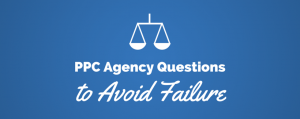Marketers appear to be making little progress in their ability to measure social media marketing, according to the 2016 Social Media Marketing Industry report.
Only 41% of social media marketers say they can measure their social activities, reveals the Social Media Examiner survey of 5,000 marketers. The measurement issue has plagued marketers since the dawn of social media. In 2015, 42% indicated they could measure return on investment and 37% said they could in 2014.
The vast majority of social media marketers wish they knew what tactics work best and how to measure their return on investment, the survey reports. A significant 86% of marketers want to know how best to measure their return on investment for social media activities. Almost all marketers (92%) want to find what tactics work best, and 90% want to know the most effective social tactics and the best ways to engage their audience on social media.
Gauging Facebook Marketing
Over two-thirds of marketers plan to increase their use of Facebook, viewed as the most important social network by far. Ironically, many are unsure of the effectiveness of their Facebook efforts.
Only 46% of marketers believe their Facebook efforts are working, a slight increase from 45% in 2015. Most marketers either don’t know or said it is not working. B2C marketers were far more likely to agree or strongly agree (52%) that their Facebook marketing is effective than their B2B peers (38%).
In addition, 39% of marketers don’t know if their Facebook traffic has declined in the last 12 months and 23% reported a decline in traffic.
What Other Surveys Show
Other research has also shown that marketers face difficulty measuring the effectiveness of social media.
The 2016 Planning Report from the Leapfrog Marketing Institute revealed a surprising drop in accountability for marketing budgets. Only 10% of C-level executives surveyed said more than 75% of their advertising and marketing budget is accountable to ROI, from 40% in 2015.
The decline in accountability is at least partly due to increased investment in social media marketing where ROI is still unclear.
“My hypothesis was that in an era of ever-growing data availability, there would be an increase in measurable ROI,” stated David Reibstein, a professor of marketing at the Wharton School and an institute advisory panel member. “But there has been a huge rush to social media, despite the fact that when marketers are asked what it’s doing for them, they don’t know… but feel like they need to be there.”
A preference for vanity metrics, such as likes, number of followers and impressions, over business-related objectives such as sales often hinders marketers from obtaining meaningful measurement. Other common social media measurement mistakes include tracking too many metrics, improperly comparing different channels, and not calculating costs accurately.
How Marketers Can Improve Measurement
To help judge how social media impacts financial objectives, experts recommend:
- Set specific goals for social media campaigns and select metrics that measure those goals.
- View metrics through a single dashboard rather than trying to track metrics through different sources. An integrated dashboard of results saves time, provides real-time access, displays a comprehensive view of performance, and makes it easier to analyze and interpret data.
- Follow a few key metrics consistently rather than shifting between different metrics, which hampers analysis and wastes resources.
- Invest in analytics, such as in-house staff, agencies, tools and technology, models and customer databases, to better understand the impact of social media.
- Understand mentions. Not all brand mentions are positive. At least some are negative. A social media listening service with sentiment analysis can determine if mentions are positive, negative or neutral and grade mentions for overall sentiment. The best sentiment analysis systems combine automated software analysis with human analysis.
Bottom Line: New research reveals that almost all marketers desire to measure their social media efforts, but most are unable to accomplish that task. Connecting social media campaigns to key business objectives will probably remain challenging, but brands can make headway by tracking the right metrics, hiring analytically talented personnel, and employing first-class social media monitoring and measurement services.
This article was originally published on the CyberAlert blog.
Digital & Social Articles on Business 2 Community(38)
Report Post








